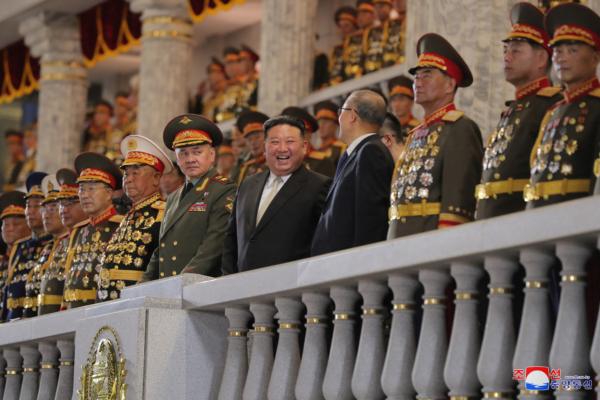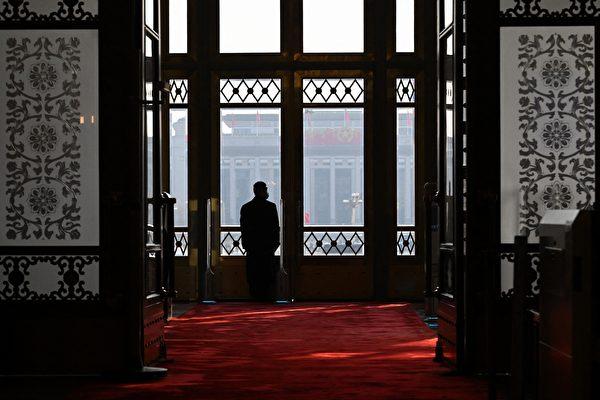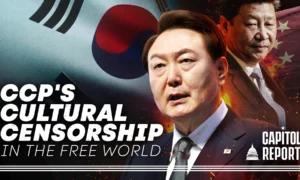Open Translation Center will provide lawmakers and the public with accurate and accessible information about countries of interest.
A group of bipartisan lawmakers from both the House and Senate introduced a bill on April 11 to establish a federally funded translation and research agency. The agency would be responsible for interpreting open-source materials from China, Russia, and other countries related to U.S. strategic interests, and making them accessible to the U.S. public.
The bill is titled “Open Translation Center Act”, in which lawmakers said that the proposed Open Translation Center (OTC) will translate both official speeches, announcements, and documents, as well as semi-official materials. The center will also be tasked with training “outstanding analysts and linguists” specialized in the countries of interest.
The bill was introduced by Joaquin Castro (D-Texas), a member of the House Permanent Select Committee on Intelligence, Mike Gallagher (R-Wis.), chairman of the Select Committee on China, and Senator Tammy Baldwin (D-Wis.).
The bill recounted the vital role of translation in the Cold War era, stating, “During the Cold War, the Foreign Broadcast Information Service provided translations and open source analysis that nourished generations of diplomats, journalists, academics, students, and others. Today, a public translation and analysis organization is needed to support the development of United States foreign policy and to enrich public understanding.”
Besides news and commentary, the OTC will translate and interpret official and semi-official reports, speeches, and journals, to help policymakers and the public gain a more accurate understanding of the countries of interest.
The bill emphasizes contextual information being provided to the public, including the biographical background of major leaders, descriptions of political processes, military weapons systems, important government bodies and companies, and explanations of significant concepts and phrases.
Know Your Enemy
“The United States can’t afford to be in a position where our competitors know more about us than we know about them,” Mr. Castro, the bill’s sponsor, said.
“Our adversaries, namely the Chinese Communist Party, continue to grow increasingly aggressive across the world stage. This poses a serious threat to American national security and in order to understand and combat these threats, it is imperative to be able to read and understand our adversaries’ primary sources,” Mr. Gallagher said.
The OTC will also train analysts and linguists to specialize in China, Russia, and other countries of interest. A full list of the target countries will be determined later, according to the bill.
For the bill to become law, it must still pass both the House and Senate by January.
Chen Shih-min, an associate professor of political science at National Taiwan University told The Epoch Times on April 13 that China or Russia have contacted a lot of cognitive operations in the United States or Western countries, including Australia and Canada, through social media such as TikTok, which will make it impossible for ordinary people in the United States and the West to correctly understand what China and Russia intend to do. “They [the Western public] even wrongfully believe that the bad things that China and Russia have done are not that serious, and they are still good.”
Mr. Chen believes that the United States setting up such an agency will reduce the general public’s misconception caused by cognitive warfare from China and Russia. “This is something very meaningful. I think it’s very important to us in Taiwan,” he said.

Wu Se-chih, a researcher at Cross-Strait Policy Association in Taiwan told The Epoch Times on April 13 that in recent years the CCP’s leader Xi Jinping has tightened internal control and even prevented some important documents or information related to the communist regime from leaking out. “Therefore, it’s more difficult than before for the outside world to obtain and assess information regarding China.”
The bill shows that the United States and other free democracies in the world are increasingly worried about Xi’s attempt to divert internal pressure through external oppression, as China is facing grave social and economic problems, Mr. Wu said.
“At [the] current stage, I think it is obvious that the distrust in US-China relations is actually deepening. Taiwan and other democratic countries are faced with similar issues [with China]. How can they improve their people’s ability to spot … false information [spread by the CCP’s cognitive warfare] and more correctly understand the threat from China. I think this [the bill] sends an important signal.”
Mr. Wu believes that after the bill becomes law in the United States, other free democracies will take similar action to have one more tool to counter the CCP’s infiltration and attempts to threaten democracy. “The United States will try to cooperate with other democratic countries in this regard,” he added.
Great Translation Movement
Since 2022, many bilingual overseas Chinese have been translating the CCP’s official statements and academic speeches—those not officially published but posted online by netizens—into English to help expose the CCP’s agenda.
They’ve also translated the extreme views and comments made by pro-CCP Chinese regarding international relations on global social media platforms such as X.

The CCP views the movement, dubbed “The Great Translation Movement,” as a significant threat because it has exposed the truth about and real intentions of its regime, which are not well-known to the international community due to language and cultural barriers. The CCP has criticized the movement through its media outlets and attempted to ban it.
Luo Ya contributed to this report.
Original News Source Link – Epoch Times
Running For Office? Conservative Campaign Consulting – Election Day Strategies!


